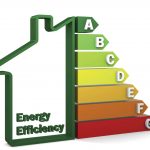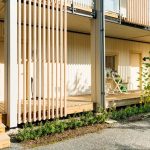I understand airtightness does a lot of the heavy lifting in terms of insulating the house and keeping it warm. But I’m worried about moisture management. If the house is really well sealed up and fully airtight, will the airtightness membrane allow the building fabric to breathe, and control moisture?
A little bit of moisture ingress is alright, if it is regulated and if it can dry out in a timely manner. And that is the purpose of putting in place an airtightness strategy, to manage not only air but also vapour within the structure (walls, roof, around windows
and all other junctions) eliminating potential problems caused by moisture build up while at the same time keeping heat in and draughts out.
Different building methods/makeups may require products with specific attributes to help manage moisture. You may require technically different airtight products for
different build ups.
Broadly speaking there are three types of airtight / vapour control products, fixed sd which regulates vapour in one direction only at a fixed volume, variable sd which controls vapour in both directions according to the surrounding climatic conditions
– important in a vapour tight makeup such as flat roofs, and full vapour blocks for extreme heavy moisture loads but only recommended if installed professionally.
A compressive vapour control strategy will make provisions for the inside of the house to be five to six times more vapour tight than the outside. Vapour will take the route
of least resistance and migrate to the outside.
For all makeups that are not vapour open to the outside a variable sd membrane would be recommended.
The bottom line is, make sure to get your airtightness strategy and product specification done at the design stage.
Not all membranes are the same so don’t just go by price or what’s locally
available. Source the product that is technically correct for the detail specified at the design stage.

isocell.ie, isocell.co.uk







